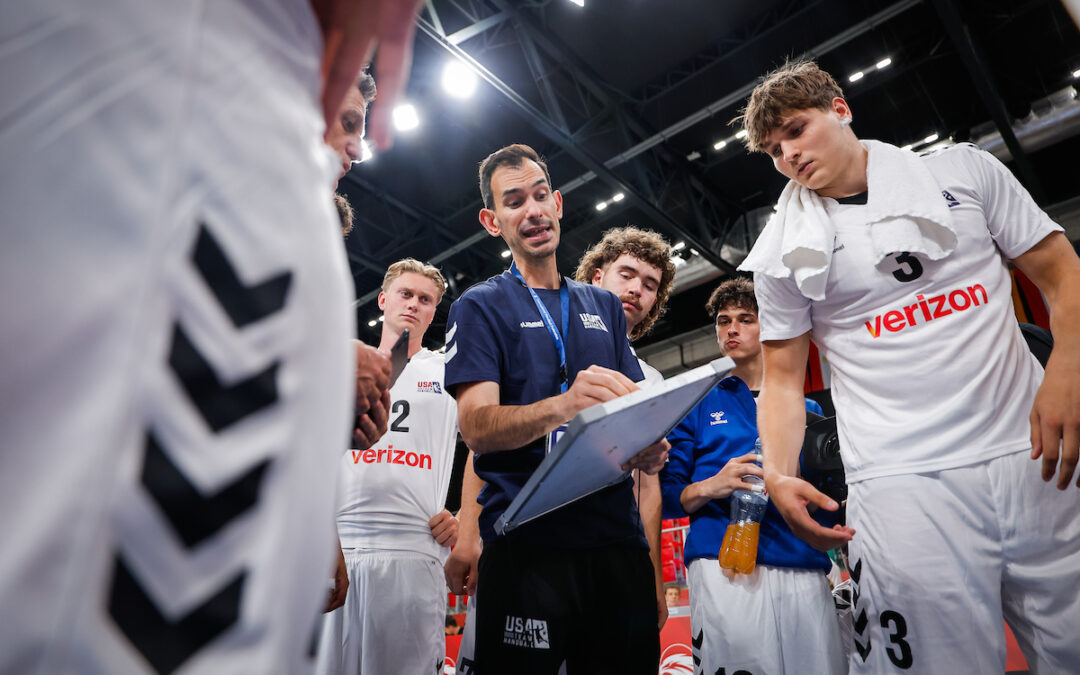The United States is one of the most developed sports markets in the world. In this country trends are set in terms of training methods, organization of games, cooperation with sponsors and marketing issues. However, handball is not a popular discipline in this country. Still, Americans take part in the biggest tournaments – the senior world championships, the youth world championships, such as the one currently taking place in Poland, and club tournaments such as the IHF Super Globe.
Where do they get their knowledge about handball from, why can’t handball culture be simply „copy-paste” across the Ocean, how are national games organized there and why can the Olympic Games in 2028 help popularize the discipline?
We invite you to an interview with Danilo Rojevic, the Serbian-born coach of the US youth team. Although he is working for a worldwide video game company, handball has always been present in his family as he is the nephew of Boris Rojevic, the former coach of the Serbian national team and the RK Vojvidna club, which plays in the EHF European League.
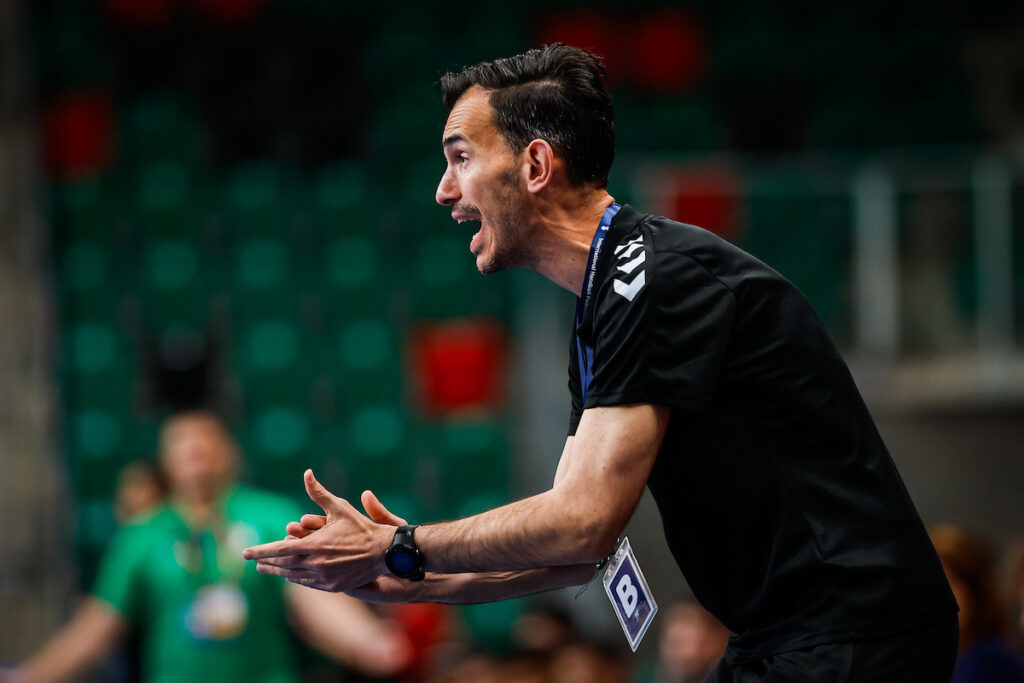
Marcin Batóg: I will start this conversation by recalling my visit to the United States about 20 years ago. I did not know English at that time but was interested in sports, I only watched sports on TV. I was switching channels and I said to my dad: “Look what a strange sport, they are throwing such a small ball”. And Jim, our friend in the US, said: Oh, it must be handball. But it wasn’t – it was polo. Has the recognisability of handball among Americans increased over the years?
Danilo Rojević, headcoach of Team USA U21: First of all, it is a very different market from the European one because of the different sports dominate – basketball, baseball, hockey, American football, soccer, but also because of the way that talent development is structured in those markets. In Europe we have youth programs that build recreational, semi-professional and professional clubs. In the US we don’t have that extensive structure. We have essentially a program that goes thru high school and college. If you are performing well in college, you can integrate professional organizations like e.g. the NBA, MLB or NFL. There is no real semi-professional or amateur structure that is as developed as in Europe. So for a sport like handball – what I think is very important to understand is a cultural difference. It won’t be as simple as a „copy-paste” trick to take all the best from Europe and implement in the United States. A second important aspect is how we build the sports in the US. You can do it from the bottom-up – build sports academies and infrastructure and level up. But also you can do it top-down – build a professional club and hope to have get younger players wanting to play. I have been for 10 years in the United States now and still am really not sure what the right path to build handball’s popularity is. I think it can offer something that Americans would like to see: it’s dynamic, engaging, fast, with lots of goals. There is an interest in the sport because it is culturally underrepresented over the last 50 years and unable to find the right business model to succeed. All these make it very difficult to establish that sport in the United States. I think the top-down approach is probably now more in favor of handball, for instance with four-six very strong professional clubs in big cites like Los Angeles, San Francisco, Chicago, New York, Miami, supporting them as much as possible and building younger teams so these younger players could look up and one day decide to go professional. Today with no professional entities, the younger players arrive to that point of decision: if handball doesn’t earn me a living I am going to the sports which give me that or choose an academic path which give me resources to live in the future.
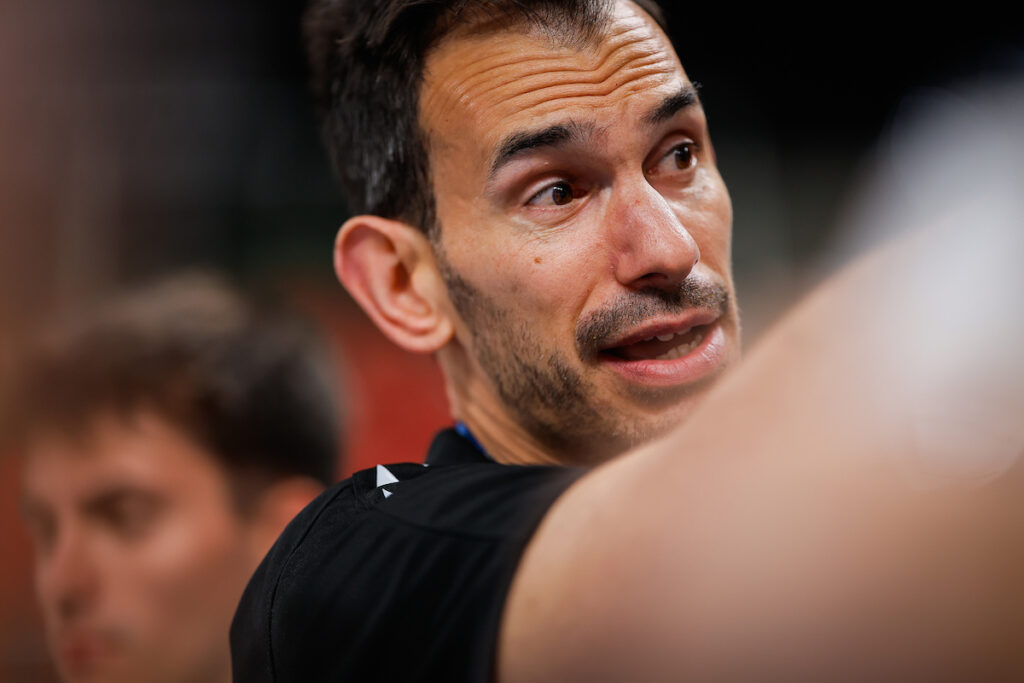
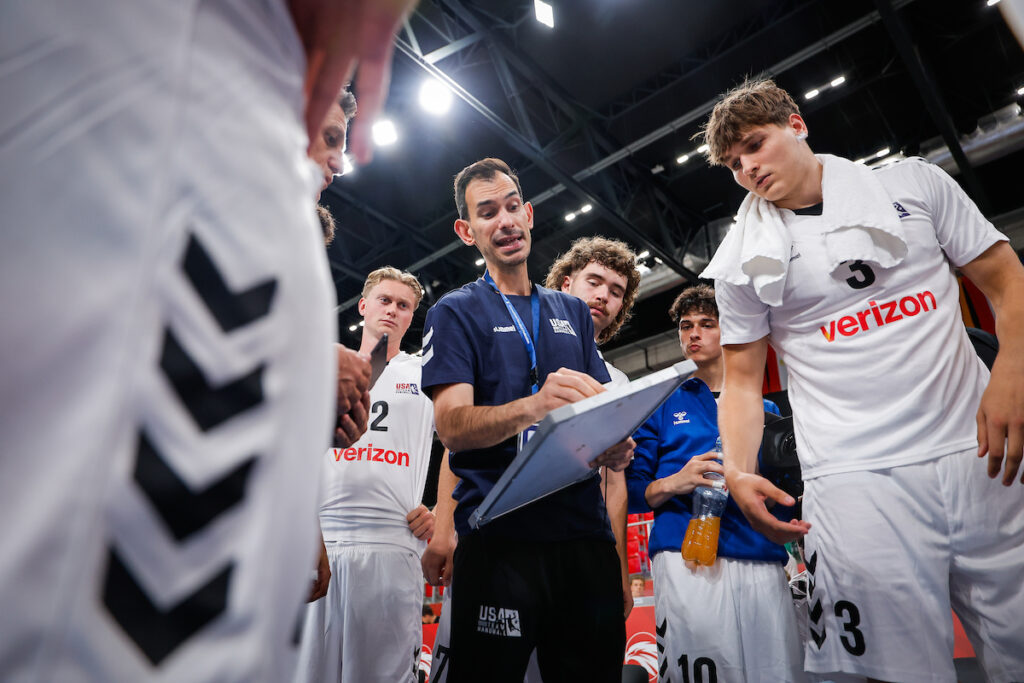
It is not easy to encourage children and teenagers to play handball, because it won’t give them the same financial incentives as basketball for example. In your opinion, why is it worth for them to play handball?
There are two interesting aspects here. I think this is the sport they are curious about, because Americans always are eager to see and try novelties. I think handball is a sport they are curious to discover. However, this is just one among many sports that are available. In consequence the traditional sports like baseball or American football win. And also because it’s not on TV. Today with my staff I was walking in the park in Dąbrowa Górnicza spotted three handball courts. When you go to the United States what you see is basketball courts, baseball fields and soccer pitches. That has very important consequences. Whenever we want to approach the perspective of a young player not only must we explain to him what the sport is about but also teach him the basics: how big the court is, how you play that sport. There is a lot of education needed.
Let’s talk about coaches. Where do you get the know-how from? Do Europeans came and teach Americans, do you invite them?
I was born in Belgrade in Serbia and grew up in Switzerland. My father Slobodan was a professional football player for the Jugoslavian national team and Partizan Belgrade. I got my handball education in Switzerland, I played for the Swiss profesional league under 19 and 21. Ten years ago I moved to the United States to work for the video games company 2K. I started coaching when I was 26 or 27. And I discovered a club in San Francisco for which I worked for eight years. We won four national championships and we went for two IHF Super Globes and played against Industria Kielce as well.
I got the expertise in Europe but in the US we have coaches from various parts of the world. For example my assistant Julio Sainz, a lecturer at the IHF, is Cuban, got the education there and brought it to the USA. We have coaches educated in the United States by Europeans too.
Is it difficult for you to share the time between your paid job and volunteering and coaching a San Francisco team or the U21 national team?
At the beginning it was but now I’ve learned how to manage my time. Also a big advantage of working in California is that employers are flexible and understand that working is not everything and I am priviledged to have the boss who values and supports people with passions and on a mission.
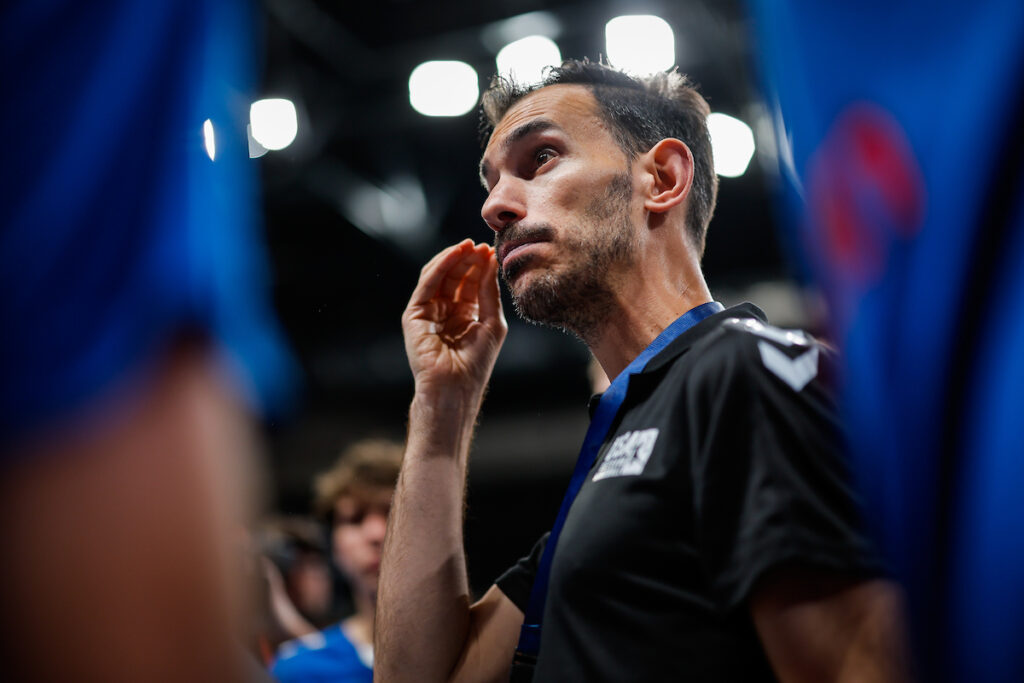
How is handball organized in the United States? Are there any similarities to organizations like the NBA? How many clubs do you have, what about infrastructure?
We are operated by the USA Handball which is the American handball federation. There are about 30-40 active clubs, they are spread across the country: Los Angeles, Miami, Denver, Seattle, Portland, etc. Those clubs are essentially more recreational or amateur. By definition there is no professional club in the USA. And two or three biggest handball clubs are in NYC and San Francisco. They probably have more than 70-80 members. Other are smaller, less than 50 members.
Because of the distances between towns we are unable to play championship games every week like in Europe so the tournaments are organized every 4-6 weeks in various parts of the country. The teams meet for example in Denver and play from Friday to Sunday three to five games. You earn points that will determine at the end of the season who goes and plays in the Elite Championships. Those eight teams fight for the national title and the champion can go to IHF Super Globe qualification on July.
How often do you have training sessions in the club?
In San Francisco we had practice three, four times a week.
In three years the United States will host the Olympic Games. Could this tournament be an ecourgament for handball in the US?
I hope the Olympics will have an impact. The Games are on TV and we hope for new and dedicated players. However the interest comes generally from 18-25 year olds and in my opinion it is too late to progress at that age. We need to find a system in which big competitions like the Olympics raise the interest in the sport among 12-14 year olds. But the Olympics is definitely a very important platform, especially when it’s organized in Los Angeles. There are three clubs in this area – in LA, San Diego and San Francisco and a pretty big area for handball perspectives. But in my opinion the Olympics solely is not enough for us to expand.
.
But you regularly play at youth category competitions organized by the IHF. like the U21 world championship in Poland. So you are present in worldwide handball. What do these tournaments mean to you?
Well, handball is not popular in the USA but I think this tournament is an opportunity to expose those young players to the popularity of the game in Europe. My staff, the team manager and federation work hard to make sure that people in the United States are aware that we are here not just to play but to find out abut the players, how they are selected, how the are performing.
I have been coaching this team for almost four years and can see our pool of players is growing now. We have good 50 players now, we count after some time we will have maybe 30 more. The tournament in Poland could trigger the interest in the game. I see it as big machine a big machine. Everything should work together: junior, youth, men, women, wheelchair, beach handball. And big sponsors to help us. Today we are fortunate to have a big sponsor, Verizon, who is also supporting other sports like the NFL. Sponsors push the sport further, help us grow.
I would curious to know how you manage the team, the players and especially their emotions. We are talking before your game against South Korea and I hope you win. But if not, how to cope with defeats.
From the outside it may look difficult after the two lost matches. But we know where we come from. And what are goals are. For us game against Sweden…
Doesn’t count?
It counts actually but we know that wining or losing is not the objective. We focus on player development and even in the game against Sweden when we lost by 18 goals we measured up to the opponent. Our objective, especially in the preliminary round is specifically how to reduce the gap between us and the best teams. And I think we achieved something. I give you an example. This group two years ago went to the U19 world championship in Croatia, played against Sweden and lost 50:17. Today we lost by a much smaller margin to the team which is way better than us. And also two years ago we played against Korea and lost by 17 goals. (On Saturday the USA lost against South Korea only by two golas – 33:35). We understand that there is a clear gap between those teams and ours. And instead of focusing on wining or losing we focus on the key segments of the game to improve and correct them, how to elevate the physical, technical and tactical level of our athletes. So that when we face the Koreans or Algerians and Canadians next Monday and Tuesday we can actually start winning.
It actually happened two years ago during the World Championship. We were in a very difficult group – France, Poland and Croatia. Impossible for us, we lost three games. But later we played a draw against Algiera, we beat Libia, Costa Rica and almost beat Angola. The kinds of objectives we concentrate on are how to reduce the gap and develop. So when we play against the teams from South America, Africa except Egipt, from Asia, we can actually beat them.
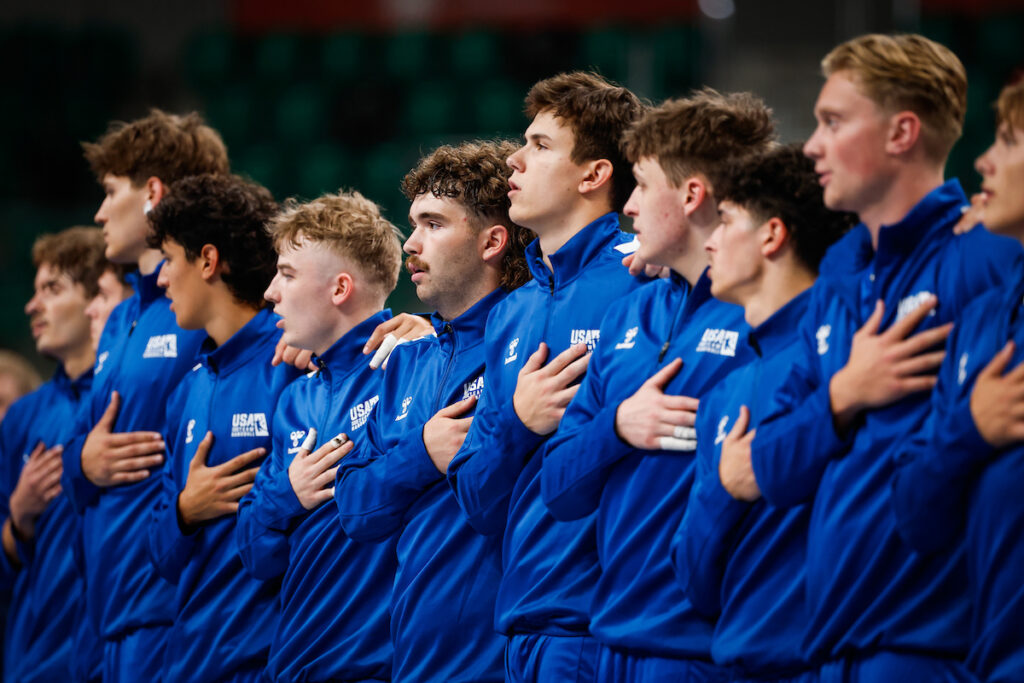
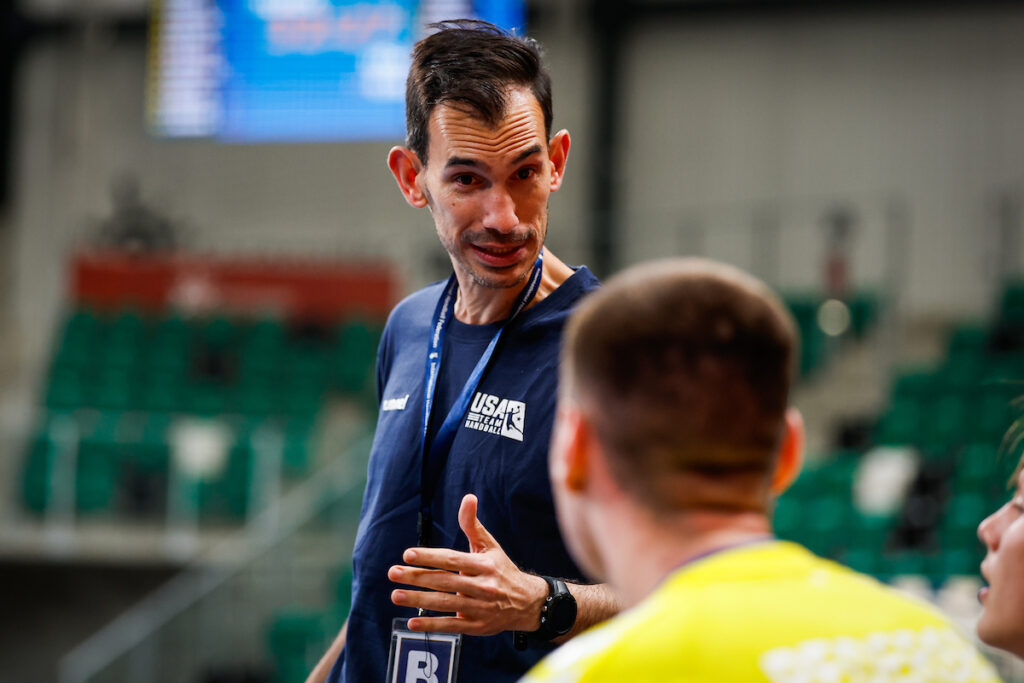
I have just talked with a member of the Bahrain national team staff and he said for them the real tournament stars with game against Saudi Arabia. Because of Spain and Egypt are out of reach.
The same for us. The tournament starts against Korea.
Let’s talk about the Polish accents in you team – Tristan Morawski has Polish roots, he plays in Sandra Spa Pogoń Szczecin in the second division in Poland. He has a younger brother who is a student at a handball sports school in Kielce.
We have four players in our team who played in senior world championship in January: Maksim Mc Cauley, Benjamin Edwards, Rodrigo Campos and Tristan Morawski. So Tristan is definitetly the core of our team. Not only because of his age, but also because of his experience in the Polish Central League. His brother was just named on the extended roster for U19 team. We have an eye on him but he was born in 2007 as such was not selected. They are both left-handed right back players so this is the position which is very important for us in senior level.
If in the future American coaches and players earn money from handball, will it be a proof that the discipline has made a great step forward?
Absolutely. The day when we will be able to popularize our sport and bring it to the point where players and coaches can earn a living at this job will be fantastic. I personally think that money can be a motivator and also a barrier to growth. I think if today we had all a salary for what we’re doing, we could dedicate our time to the sport. But at the same time money is a double-edge sword. You never know what it could bring. If in the future coaches and athletes can earn for a living at this sport it would be definitely be a proof that we have made a great leap forward.
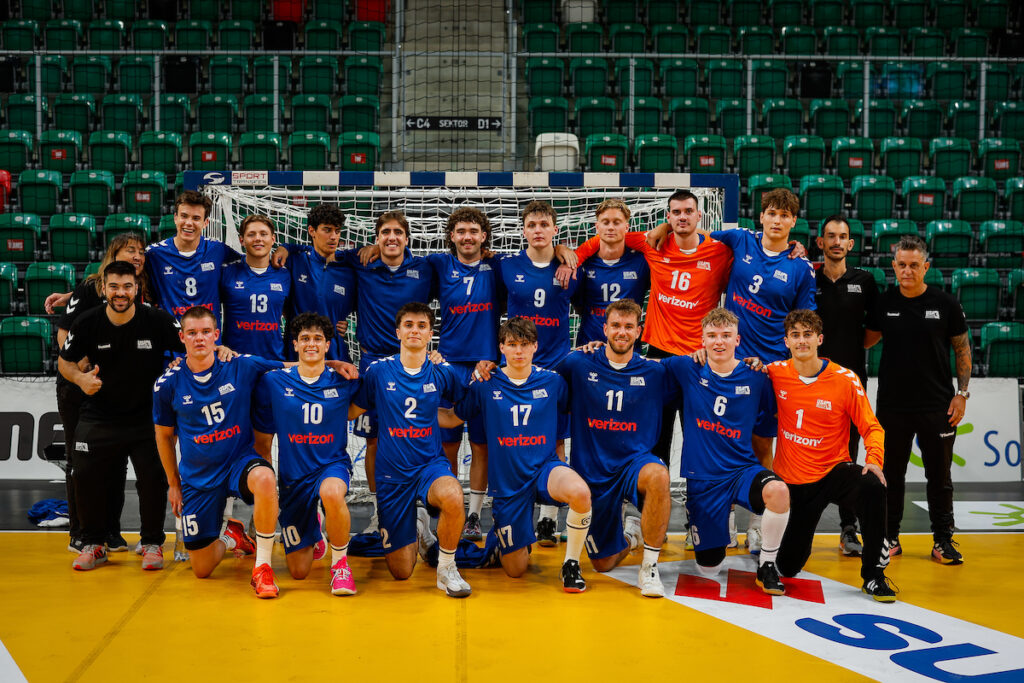
Author: Marcin Batóg



